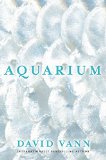Summary | Excerpt | Reviews | Beyond the book | Read-Alikes | Genres & Themes | Author Bio

A Novel
by Tupelo HassmanOne of the biggest trends in fiction writing over the past several years has been the popularization of so-called flash fiction, ultra-short stories whose precise and sparing use of language often resembles poetry as much as it does fiction. Part of the surprising beauty of Tupelo Hassman's debut novel, Girlchild, is that many of the small vignettes that make up the short chapters read like superbly crafted flash fiction. It shouldn't be a surprise, really, since Hassman has published flash fiction on such sites as 100wordstory.org. Here, though, the pieces, each of which could stand on its own, combine to become far more than their expected sum.
Hassman also experiments with form in the novel, utilizing documentation such as social workers' reports and whimsical elements like mathematical word problems. Not only do these materials tell Hassman's story in an unusual and flexible way; they also highlight Rory Dawn's creativity and intelligence in a particularly vivid example of "showing, not telling."
Most consistent - and heartbreaking - are Rory's repeated considerations of the Girl Scout Handbook, which she checks out of the library so often that she almost literally reads it to pieces. Her desire to live up to the Girl Scout ideals, and her growing awareness that her sense of "girlhood" is worlds away from the one in the Handbook, provides insights into her situation far more gut-wrenching than most straightforward narratives could give. In the section entitled, "Proficiency Badge: Puberty," for example, the first of Rory's suggested activities is "Act as if you know more about the following things than you do: sanitary pads, parked cars, birth control, love."
Love, in fact, is possibly the most complicated notion in Rory's small childhood world. Her sexual abuse at the hands of a trusted adult forever alters her conception of sexual love. Her mother's near-obsessive protection (and equally passionate neglect) often leads Rory to wonder why she warrants so much of her mother's anxiety, not to mention her hopes and dreams. All around her, Rory sees images of love that are bleak, soulless, or downright warped - how is a girl to find proper role models in a place like The Calle trailer park?
Although Hassman's novel is, undeniably, a series of small gems tied together by one character in search of answers, it's also a broader meditation on what it means to grow up female in small town America. The novel is set in the 1980s on the outskirts of Reno, Nevada, but dead-end communities and hopeless cases are neither geographically nor chronologically specific. Rory is, like countless others, a bright spot in an otherwise bleak landscape. Midway through the novel, Rory throws a spelling bee on purpose because "the next level will take me farther away, in dresses I don't have, on days off Mama won't get." Although in the end Rory's story is far from rosy and her path far from clear, the reader is left feeling that, for once, Rory might have overcome both nature and nurture to come up with the right answer after all.
![]() This review was originally published in The BookBrowse Review in March 2012, and has been updated for the
February 2013 edition.
Click here to go to this issue.
This review was originally published in The BookBrowse Review in March 2012, and has been updated for the
February 2013 edition.
Click here to go to this issue.

If you liked Girlchild, try these:

by Rita Bullwinkel
Published 2025
An electrifying debut novel from an "unusually gifted writer" (Lorrie Moore) about the radical intimacy of physical competition

by David Vann
Published 2016
In crystalline, chiseled, yet graceful prose, Aquarium takes us into the heart of a brave young girl whose longing for love and capacity for forgiveness transforms the damaged people around her.
If passion drives you, let reason hold the reins
Click Here to find out who said this, as well as discovering other famous literary quotes!
Your guide toexceptional books
BookBrowse seeks out and recommends the best in contemporary fiction and nonfiction—books that not only engage and entertain but also deepen our understanding of ourselves and the world around us.